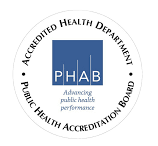Influenza (Flu)
Click here to learn more about seasonal flu and flu vaccine.
2023-2024 Flu Season
Walk-in flu shots will be available at open Local Health Units across Arkansas beginning on Sept. 26. Click here for a full list of Local Health Units around the state. There is no out-of-pocket expense for flu shots, but you are encouraged to bring insurance information if you have it.
Come join us as Local Health Units kick off flu week from October 2nd – October 6th. This statewide event is open to all communities around the state to help us knock out the flu.
- Click here for School Clinics.
Weekly Influenza Report
During the flu season, the Arkansas Department of Health (ADH) produces a Weekly Influenza Report for clinicians. The report provides information on flu activity in the state. The report also compares influenza-like illness (ILI) in Arkansas to activity in the US. ADH receives reports of only a fraction of flu cases. Therefore, it is important to understand that the information in the weekly update is representative of the timing and location of activity, but it does not reflect the overall burden of disease. It is likely that there are many more people actually affected than the report shows. Clinicians and policymakers may find the report helpful in terms of communicating with colleagues and patients about the current status of the flu season.
The Arkansas Department of Health (ADH) has created this influenza reporting website to track and record lab-confirmed cases of flu and to replace the fax-based reporting system. Providers and facilities are encouraged to use this secure website to report individual flu case information. This information enables ADH to gain an accurate picture of the impact of the flu on Arkansans generally, and specifically by age groups, geographic location, and type of circulating strains. With this information, ADH can better and more effectively target our response measures and communications to those areas that are being the most seriously impacted.
Signing up is a one-time process. When reporting a flu case you need only log in and enter the patient’s information. Please notice that you can enter more than one facility or provider and different users can report for the same facility if needed.
After you log in, please use ‘Enter Influenza Case Reports’ from the ‘Influenza Cases’ drop-down menu at the top of the screen to get started. You can add a new report, save a record to work on it later, and view and export your saved record. You can also apply filters to your data, and edit or change your user profile information. Every provider can only view the records they have entered along with aggregate state data.
Please notify us by phone at 501-537-8969 if you suspect an influenza outbreak in a community or institution, and of any suspected influenza patient with a history of travel to SE Asia or any avian flu endemic area.
If you have any questions or difficulties using the website, please contact our information technology support here.
| Resources |
| Flu Reporting |
| Weekly Flu Report |
| Influenza (Flu) (CDC) |
| Rules - Reportable Disease |



